
Those were times when the gods moved through invisible borders to sojourn on earth. Human civilisation was still relatively young, and the atmosphere was permeated with a spirit of enquiry. The external world whetted man's curiosity, and his inner world invited him to reflect. If it was common to see artisans in deep concentration, carving out figurines on chariots, it was equally unexceptional to see mystics contemplating on the secrets of life. Society, at large, was motivated towards augmenting mutual enhancement; fostering a sense of togetherness; and encouraging an attitude of ahimsa. Yet, it was not the perfect age. For dharma, which in its complete state stood on four legs, was now having to balance itself on just three. It was Treta Yuga.
Sage Narada, one of the sons of Brahma, stepped out of his celestial abode to descend into a dense forest in Bhuloka. The forest that was home to several beasts of prey was also the haunt of a hunter and wayside robber, Ratnakara. As was his wont with passersby, Ratnakara accosted Narada and demanded his possessions at knife-point. An unfazed Narada responded, "I have nothing of material value with me." And further asked, "But...why are you committing this baneful act?" The bandit replied that he had taken to it in a desperate bid to support his wife, children and aged parents.
Narada looked him in the eye and asked, "Are you aware that you will have to experience the effects of your wrong Karma? Do you think that your family members will come forward to partake in the suffering that is bound to follow?" Narada was a sage of legendary wisdom and omniscience. If he was eliciting information from Ratnakara about his motives, it was only with the intention of having the robber introspect. When Ratnakara replied that his choice of action was dictated solely by a sense of duty, Narada utilised that opportunity to awaken the man to the inescapable effects of karmic laws.
This story is from the {{IssueName}} edition of {{MagazineName}}.
Start your 7-day Magzter GOLD free trial to access thousands of curated premium stories, and 9,000+ magazines and newspapers.
Already a subscriber ? Sign In
This story is from the {{IssueName}} edition of {{MagazineName}}.
Start your 7-day Magzter GOLD free trial to access thousands of curated premium stories, and 9,000+ magazines and newspapers.
Already a subscriber? Sign In

Panchakroshi Parikrama of Varanasi
At the snow-capped Kailas, the Divine Lord Shiva was seated with Mother Parvati.
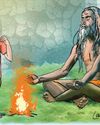
Gadai and the Monks
A fictional narrative based on incidents from the childhood of Sri Ramakrishna.

Chintayo momo maanosho Hori...
Sri Ramakrishna loved songs. There probably was no normal day when he did not sing some songs.
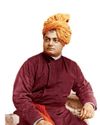
The Vedanta Vaccine
The world is still struggling under the impact of the pandemic due to Covid-19 for the last three years.
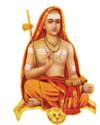
Chandrakirti's Chariot: Self in Madhyamaka Buddhism and Advaita Vedanta
The goal in Advaita Vedanta is the cessation of suffering and the attainment of true fulfillment. Suffering, according to this school, is due to ignorance of the true nature of the self and consequent erroneous identification with the body-mind.
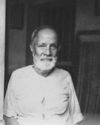
Reminiscences of Sargachhi
Question: यद्यदाचरतत श्रेष्ठसतत्तदरेवरेतरो जनिः। ‘Whatever a superior person does, others do the same thing!’ (Gita 3:21) – What does this statement mean?
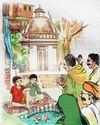
THE AUTUMN FESTIVAL
A fictional narrative based on incidents from the childhood of Sri Ramakrishna.
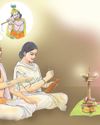
Bards of Guruvayur: Vilwamangalam II
Saints of India
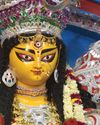
In the Universal Mother’s Divine Playground
Swami Vivekananda never taught the worship of Mother Kali. In a letter to Mary Hale he writes, “Kali worship is not a necessary step in any religion.
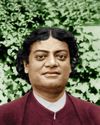
Swami Vivekananda: A Sportsman Par Excellence
In various books and articles, Swami Vivekananda has been called a spiritual leader, a prophet, a patriot, a social reformer, a philosopher, a yogi, a writer, an orator, an educationist, a musician, and so on.